Appeals Judges To Review Case of Yezidi Rape Victim Ordered To Be the Wife of Her Rapist
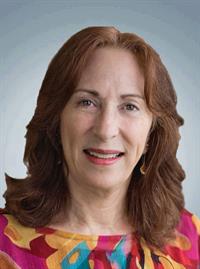 6/11/2018 11:30:40 AM
6/11/2018 11:30:40 AM
5821 View
Dr. Amy L. Beam
+
-
Faiza, a thirty-year-old, unmarried Yezidi woman from Sinjar, northern Iraq, will appeal her case in front of 22 judges in Baghdad, Iraq, on June 10, 2018. (The case has been postponed at the request of Faiza's lawyer. Two more lawyers will join her case.) In December 2017, Shekhan Judge Martez Hazim Shamah ruled that Faiza is the wife of Hikmat Bashir Qamo who kidnapped and raped her for one month. Hikmat is the owner of bars in Baghdad. On May 16, 2018, Baghdad presiding Judge Sueheil Hamid upheld the Shekhan court decision. Faiza was not permitted to be present in the courtroom when the judge announced his decision.
Judge Sueheil immediately told Hikmet, who was dressed in yellow prison clothes, that he was free to go. The outcome of this appeal will determine if the justice system in Iraq will enforce the rule of law on marriage and rape. If this decision is allowed to stand, it will set a dangerous precedent for Yezidi girls and women who were kidnapped by Daesh in 2014, forcibly married to their Daesh captors, beaten, sold, and used for sex. They want prosecutions in court against their rapists. Faiza is the first Yezidi woman brave enough to confront her rapist in court.
Faiza first contacted me on Facebook, because she saw I was helping survivors who had returned from being raped by Daesh. Faiza and I opened our smartphones and used a translation program. She sent me a message, "The same thing that happened to the girls with Daesh also happened to me."
Faiza had been kidnapped, sold, injected, drugged, imprisoned for one month, brutally raped, and tortured, and hospitalized with internal bleeding, but not by Daesh. The men who committed these atrocities against her were prominent Yezidi men from Bahzani village next to Bashiqa.
Faiza's only fault, like so many rape victims around the world, was in trusting a male friend who was like a big brother to her. She did not know that he was luring her into his web to sell her. When Faiza appealed to a higher court in Baghdad, secret intelligence police and a special prosecutor were very supportive of her, because they had known of a criminal ring dealing in trafficking girls for sex, selling children, and possibly selling body organs. They needed a solid case to go after the gang members operating in Saudi Arabia, Iraq, Turkey, and Lebanon. They immediately arrested Hikmat and put him in prison in January 2018.
The threat to me was delivered by a friend who drove three hours from Shingal to Duhok to meet me face to face. He said "friends" had asked him to "warn" me: "Do not say Faiza's name again, do not get her a lawyer, do not go to court with her, do not see her again. If you do, your life will not be safe outside of Duhok, especially if you come to Shingal. The government already knows about this sex ring. Forget it."
This story is complicated. In 2015, Faiza participated in an Yezidi demonstration demanding asylum in Europe for displaced Yezidis and international protection of their homeland of Shingal. These demonstrations occurred in every Yezidi camp and many cities in Europe. Two dozen Yezidis were beaten by Asayish security police, Peshmerga, and local police in Zakho. Faiza threw her body over a young boy and took the beating herself. She was beaten until unconscious by at least ten uniformed men. After this day, people who said they were from the U.N. visited her camp, going tent to tent to look for victims of the beatings. They discussed bringing charges against the police. After that, she began getting telephone threats and threats by strangers on the sidewalk who knew her by name. They threatened to have a truck kill her father in a traffic accident.
She thought these threats were from the Asayish until many months later. She learned they were most likely coming from friends of Sayib Hazim Suleyman, an Yezidi man whom she met in the IDP camp clinic where she worked. Faiza states that UNICEF gave her $1000 after her beating. Sayib talked her out of it, saying he was going to visit the families in tents on Shingal Mountain and he would distribute it to them.
The more Faiza confided in Sayib, the more the threats increased. The phone callers knew everything about her family members. She thought that they must be following her. One day she got a phone call from someone stating he was Asayish and ordering her to come to the gate of her camp to talk to them about the beating incident. She refused until they threatened to kidnap her sister from school. When she went to meet the men who pretended to be Asayish, outside of her camp gate, she was pushed into a car and a cloth was put over her face to breathe. She passed out. A married couple discovered her later lying in a field, naked on top. She had been assaulted, but not raped. They took her to a doctor, cleaned her up, and returned her to the gate of her camp. She did not confide in her family. She was so sore from the attack that she could barely walk for one month. Her father took to her to a doctor to figure out her strange ailment.
She went to Sulaimani and stayed with ASUDA, an organization for women, to escape the threats and danger of kidnapping again. She kept in touch with Sayib by phone. After a month, Sayib offered to drive her to the US Embassy in Baghdad where he told her she could apply for asylum. She naively believed him. Sayib picked her up in Sulimania, drove back to his home in Shekhan to collect some papers, then immediately turned around and drove her to Baghdad. In the car, she told him she changed her mind and repeatedly begged him to take her home to her family. He refused. She was trapped.
Instead of driving her to the embassy when they arrived in Baghdad, he took her to a dangerous, dilapidated section of town. When they entered the apartment, Sayib introduced her to Hikmat Bashur Qamo. Hikmat gave Sayib $20,000 in US cash. She asked what the money was for. Sayib said they were going to buy guns for Yezidis in Bashiqa to fight Daesh. Alarmed and disbelieving, Faiza ran for the door. Sayib knocked her to the floor and ran out. The door was locked and she was Hikmat's prisoner. He gave her food with a drug in it to make her sleepy, then another man named Emad injected her with something to make her pass out.
She came to in the morning and realized she had been brutally raped. Faiza had been a virgin. Beer bottles and cigarette butts on the table indicated there had been a group of men in the apartment. The injections and gang rapes continued for one week. After a week, Hikmat used her sexually for himself. She continued to be injected almost daily by Emad who was living in an apartment below. The skin on the insides of her elbows shows permanent damage from the needles. She was electrocuted on her wrists with an open cable, beaten on her head with cables, pulled by her hair so hard that there was a bald patch, savagely kicked in her side and buttock until it swelled up like a watermelon, and hospitalized. The photo shows her entire buttock is raw and a solid deep purple from the kicks.
It was when she was in the hospital that another patient photographed her injuries and gave her the SIM card from her phone with the photos and hospital records. One photo shows her red neck with deep, bloody scratch marks as if, perhaps, she was clawing to get a rope lose from around her neck. She was unconscious and has no memory of how it happened.
Hikmat took her out of the hospital against her doctor's protests. He lied and said Faiza was his daughter and she had tried to commit suicide, and he would take her to a specialist. When Hikmat returned her to his secret apartment, he brought another woman to care for her. That woman told Faiza that she had to try to escape, because Hikmat would never let her go. She had been Hikmat's victim for three years. Hikmat had sold her two little children to Palestinians. She lifted her dress to show Faiza two long scars from operations. One scar was horizontal at the left side of her waist, from the back to the front. The other scar was vertical at the right side of her navel, from below waist level to her breast. Hikmat returned to the room before she could explain the scars.
One day a man came from Saudi Arabia with a satchel of money to buy her. When he saw her drugged, bruised and disheveled condition, he did not agree to take her. However, he did leave a packet of "white powder" with Hikmat. Hikmat tasted it by rubbing some on his gums. One might infer it was cocaine.
One day Hikmat got a phone call, tipping him off about a police raid. He immediately gagged Faiza's mouth with a piece of cloth and tied her wrists and ankles with rope. He hid her in a tiny space in the wall behind a secret door that was behind a wardrobe. Ten minutes later the police raided the apartment, but left when they did not find her.
She realized she was trapped, so she decided to be nice to Hikmat in hopes he would let her out of the locked apartment and she might escape. It was during these few days that he forced her to dress in a pale green, lacy dress and pose for two fake "wedding photos.” Hikmat presented the wedding party photos to the court as proof that Faiza was his wife. The two little girls in the photo with Faiza are the children of one of his employees in his bar. All the people at the "wedding party" worked for him in his bars. There were no family members there. During this party, Faiza was drugged and kept in a room.
After being held prisoner for a month, one day when Hikmat was gone, a member of his own criminal gang broke open the apartment door, grabbed Faiza's wrist and ran downstairs with her. On the sidewalk, he told her to run fast and get out of that neighborhood because it was dangerous. He ran away. He confessed later that he could not tolerate seeing what was being done to Faiza. Faiza thinks he may now be in prison. She escaped and called her father who came to pick her up in Baghdad.
Faiza filed charges against Sayib Hazim Suleyman and Hikmat Bashir Qamo in Kaseroki court of Shekhan, Kurdistan, near Lalish holy center. She charged them with kidnapping, human trafficking for sex, and rape. Sayib Hazim Suleyman was arrested and later released on a promissory bond of 18 million Iraqi dinar. The charges and evidence against Hikmat Bashir Qamo were heard without his presence.
On August 15, 2017, the Shekhan court issued an order to arrest:
"To all people who work in courts and policemen who have this paper in his hands, you are told to catch the criminal named HIKMAT BASHIR QAMO. He lives in Baghdad, Sadoon Street, near Baghdad Hotel, the gas station, and the Sadoon police station. His job is he has many bars. His crime is under number 393 of the Iraqi Law (crimes of rape). He must be captured and brought to the police station in Shekhan to be brought to this court."
Her lawyer Heimen Farej Kheiri Bag, a nephew of the Yezidi leader Tahsin Bag, invited her to a meeting with Osmet Tahsin Bag (son of Tahsin Bag) on May 29, 2017. She refuse an offer of $60,000 US dollars in cash that was sitting on the table if she would drop her charges and say she was Hikmat's wife.
The people gathered in that meeting discussed in front of her how they could make a fake marriage certificate and pre-date it. A marriage certificate in the Yezidi religion would have to be signed by one of the religious leaders in order to be recognized by a court. If they could get the court to agree that Faiza was Hikmat's wife, he would not serve any time for the crimes he committed against her.
Later, Heimen Farej told her in a recorded phone call that Hikmat would build her a house and give her a blank check that she could fill in with any number if she would drop her charges. Faiza refused. She wants him in prison.
Tahsin Bag's representatives and the mukhtar of the Bahzani tribe, which is Hikmat's tribe, tried multiple times to meet with her father and pressure him to settle this the tribal way. Her father refused each time to meet with them and continued to support Faiza's decision to press charges in court.
A few days before the Shekhan judges' final decision, Vian Dakhil, the Yezidi parliament member, called and warned her not to talk to journalists, because this would be bad publicity for Yezidis.
In December 2017, rather than ruling on Hikmat Bashir Qamo's guilt, Shekhan Judge Martez Hazim Shamah ruled that Faiza was Hikmat's wife. This ruling was in spite of a document dated November 8, 2017, signed by Ali Khudir Alias, Headmaster the Yezidi Supreme Spiritual Council, and presented to the Shekhan court. It stated that they had no marriage recorded in their official register between Hikmat and Faiza. No ruling was made on Faiza's charges against Hikmat in spite of one year of presenting evidence in court hearings.
Faiza appealed immediately to Baghdad. The threats continue. Faiza was hit by a car while standing at the side of the road. Faiza was hit in Domiz while on her way to court in Baghdad in May. Her father and brother received death threats. Her lawyers and witnesses were offered bribes.
Hikmat's lawyer was none other than Tahsin Bag's nephew, Heimen Farej Kheiri Bag. He had been Faiza's lawyer before she dismissed him. On May 16, 2018, Faiza's case was heard in Baghdad in level one court. Hikmet testified that in the Yezidi religion, a man and woman can get married legally without signing any marriage contract. They could present a marriage contract at any later date to the court. The Arab judge admitted not knowing anything about the Yezidi marriage traditions and accepted the defendant's word that Faiza was his wife. Faiza or her lawyer were not permitted to examine Hikmat.
This ruling ignores the Personal Status Law 188 of Iraq (1959) governing marriage. Part 1, Article 6 requires two witnesses bear witness to the marriage contract. Article 10 requires the marriage contract to be registered in a special record in the competent court. This document must be signed by the two contracting parties and certified by the Mukhtar (mayor) of the district or the village, or by two revered figures of the district’s citizens. The content of the document must be written on the register and signed by the two parties to the contract, through a written signature or a thumbprint, in the presence of the judge who then certifies the marriage and provides the spouses with the marriage evidence (Hujja).
Presiding Judge Sueheil Hamid in Baghdad upheld the Shekhan court and ruled that Faiza is Hikmat's wife in spite of her strong protestations that she never married him, never signed a marriage contract, and does not agree to be his wife. No marriage document has ever been presented. The judge ordered Faiza to leave the court room before stating the decision of the three-judge panel. According to the law, Judge Sueheil, an Arab, had no authority to rule on a marriage involving Yezidis. No ruling was made on Faiza's charges against Hikmat of kidnapping, human trafficking for sex, and rape.
Faiza remains deeply traumatized, experiencing flashbacks and sobbing on a daily basis. Two days ago, she fainted in the middle of the street when walking home and had a hysteria attack. She is living in a secret location, in fear of being kidnapped again by Hikmat who can now claim her as his wife with the ruling of the court.
Mirza Dunniye, a member of the Yezidi Supreme Religious Council, was vehement in stating in a phone interview that all Yezidi marriages must be signed by both the husband and wife and a member of the Yezidi Supreme Religious Council and registered in their official book of marriages. All Yezidi marriages must have the consent of both the man and the woman. They do not tolerate forced marriages.
I, Amy Beam, have taken dozens of Yezidi couples to the Duhok Court to get their marriage certificate. The court will not issue it until receiving an official document from the Yezidi Supreme Religious Council in Lalish confirming the marriage.
I call upon the honorable judges in Baghdad to reverse Judge Sueheil's ruling that Faiza is the wife of her rapist and to reprimand or remove Judge Sueheil. Sueheil not only ignored Iraq's law on marriage, but he also had no authority to rule on a marriage case involving Yezidis.
There are more than 2,000 Yezidi women and girls who were forcibly married to their Daesh captures who sold and raped them. Many were forced to dress in a wedding dress, put on makeup, and pose for fake wedding photos. If this ruling is not reversed, those Yezidi survivors have no hope of prosecuting their Daesh rapists. This ruling also sends the signal to men in Iraq that they are free to rape, torture, and beat their wife with no fear of legal prosecution, in spite of the law.
Dr. Amy L. Beam is the author of "The Last Yezidi Genocide," which will soon be available in English, Arabic, and German. She has worked for the displaced Yezidis since ISIS attacked Shingal in August 2014. Contact: amybeam@yahoo.
 Sayib Hazim (r).png)
Hukmat Bashir (l) Sayib Hazim (r)
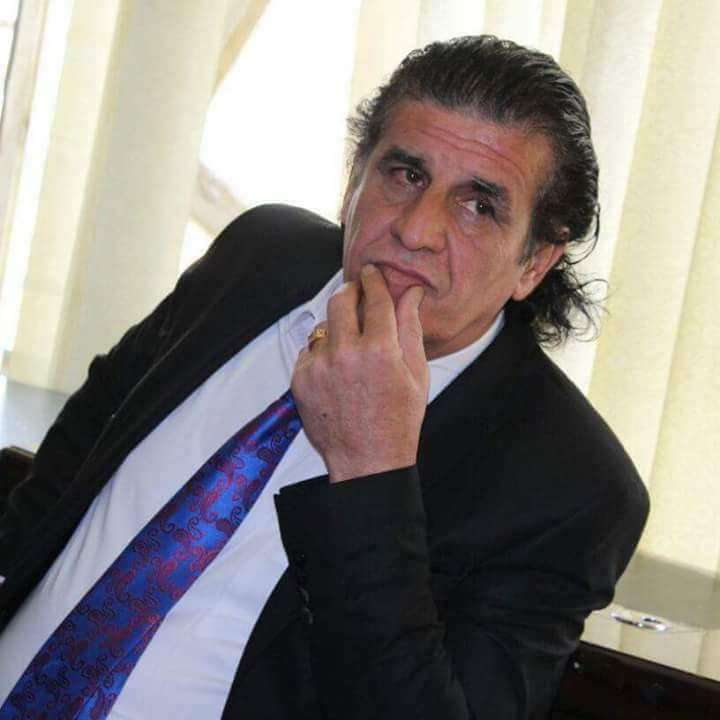
Hikmat Bashir
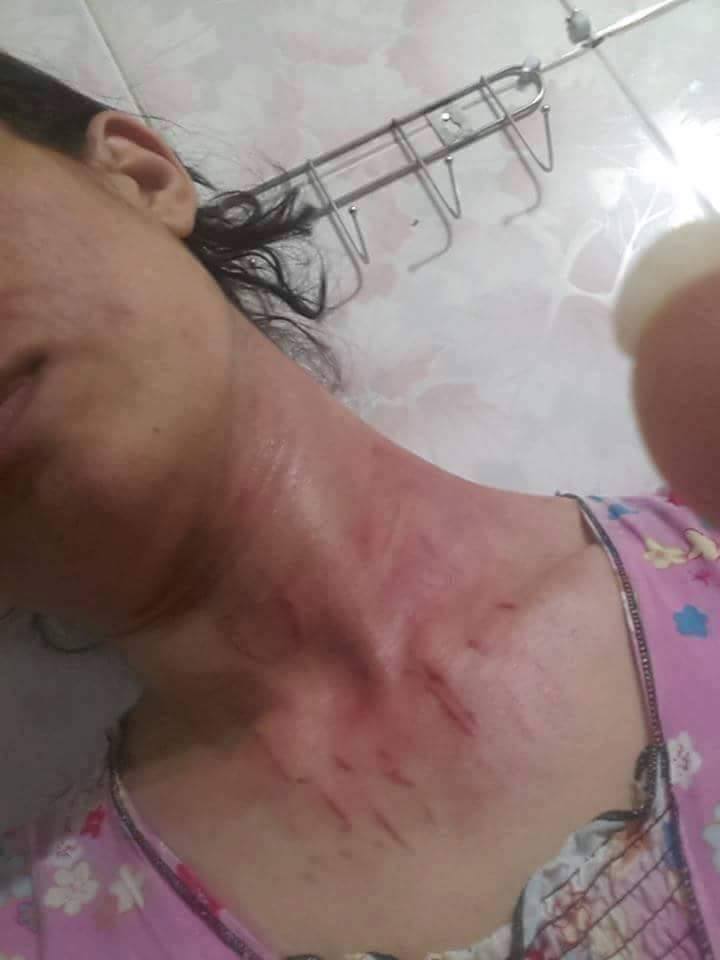
Faiza's scratched neck
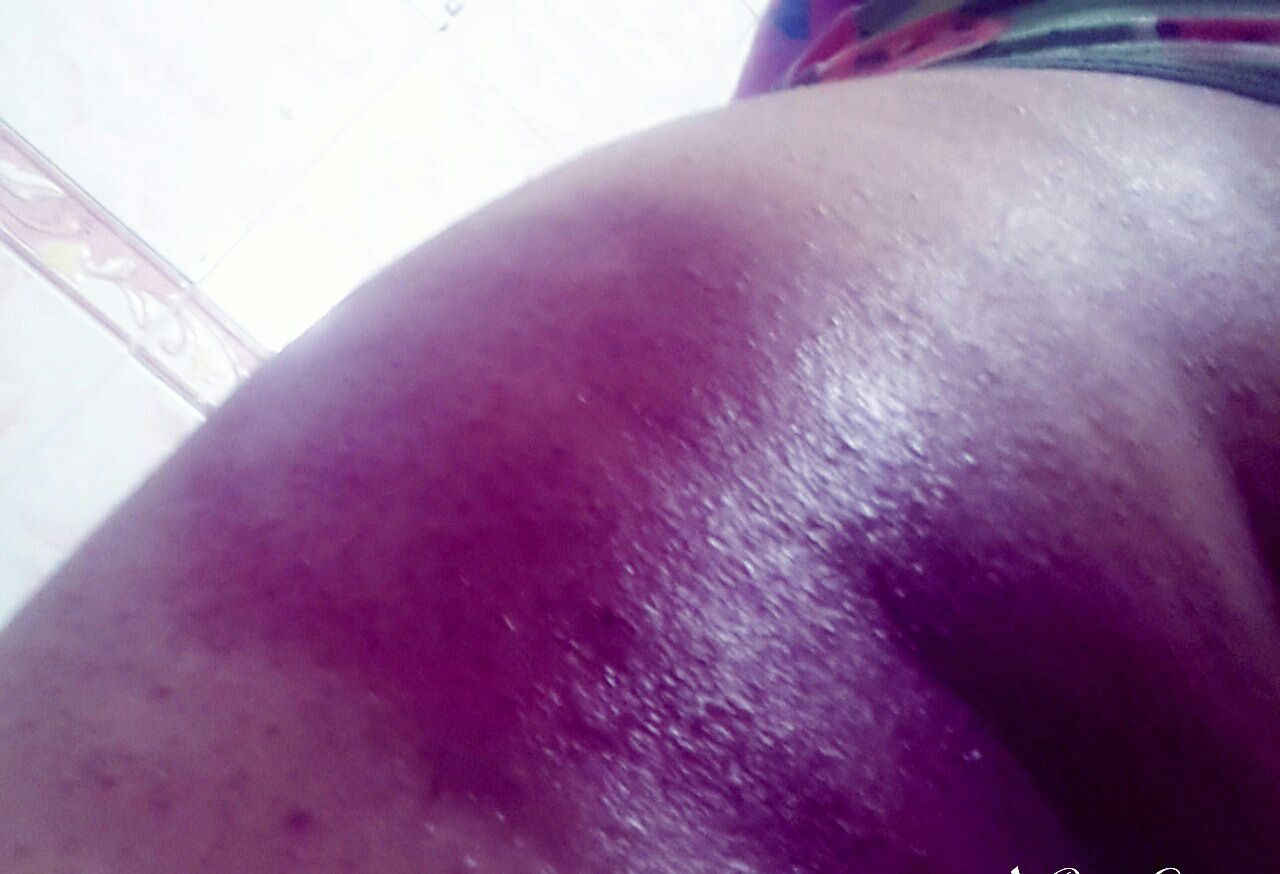
Faiza's bruised buttock
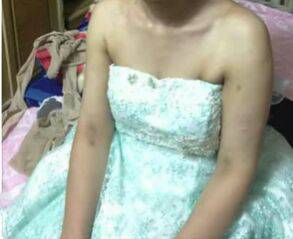
Faiza's bruised arms
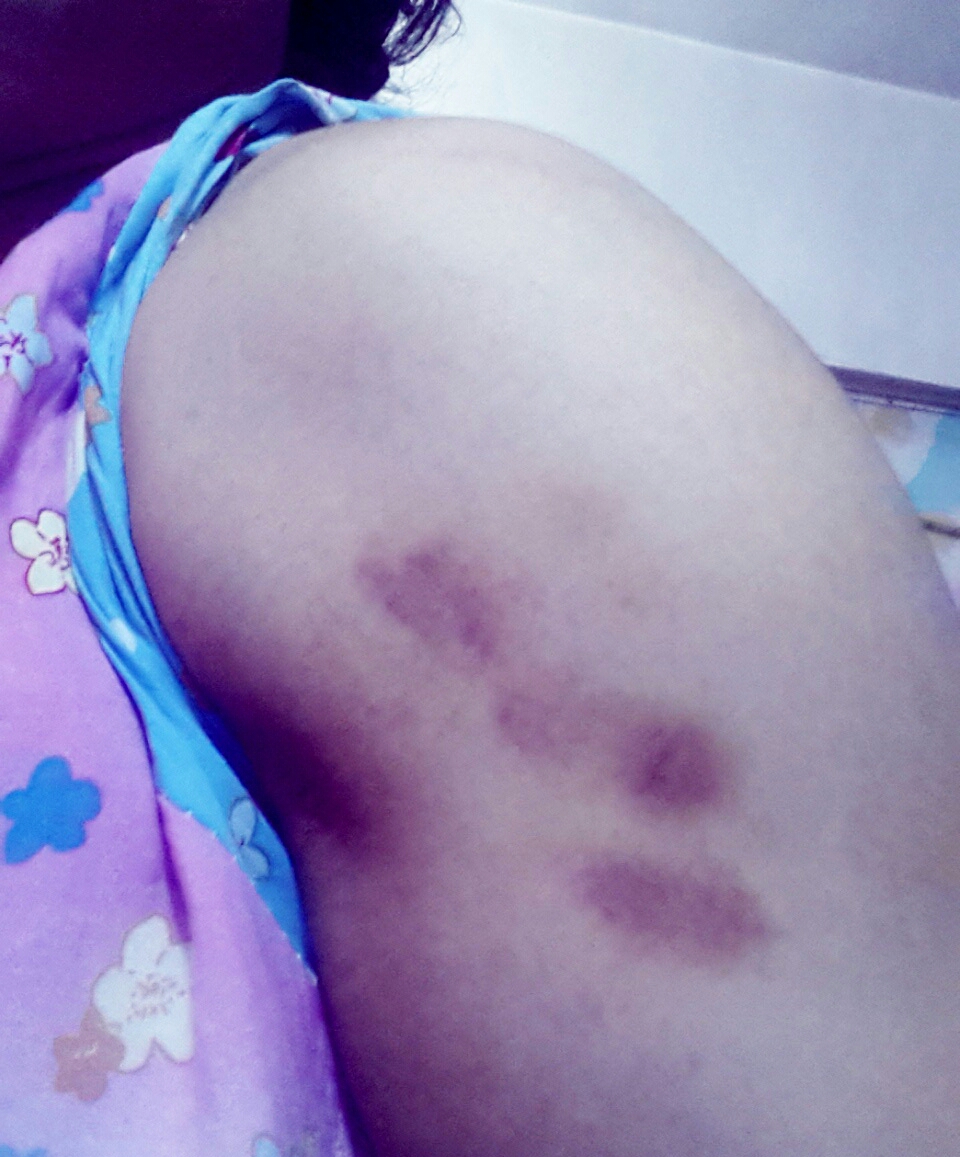
Faiza's bruised arm with fingerprint bruises